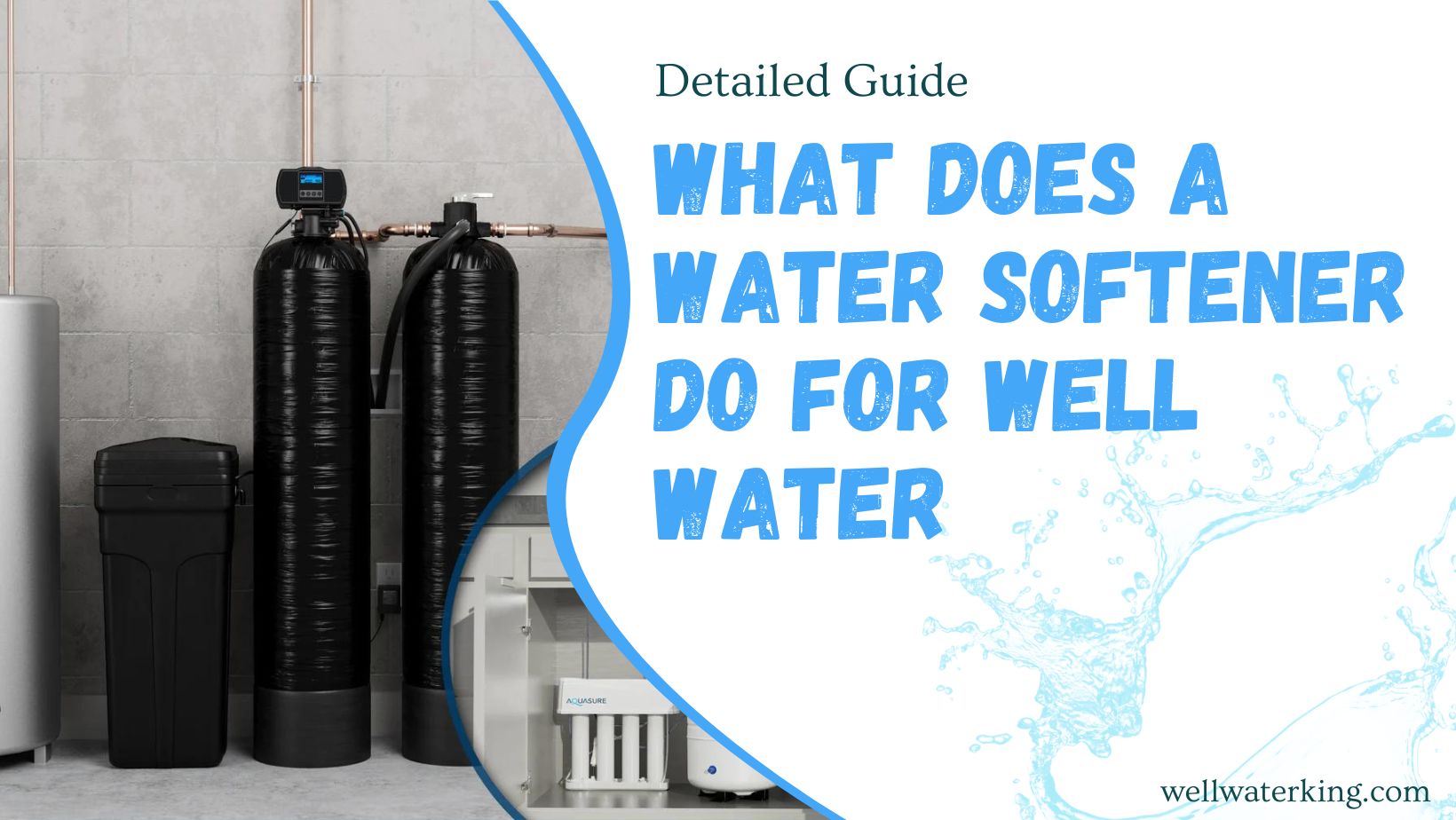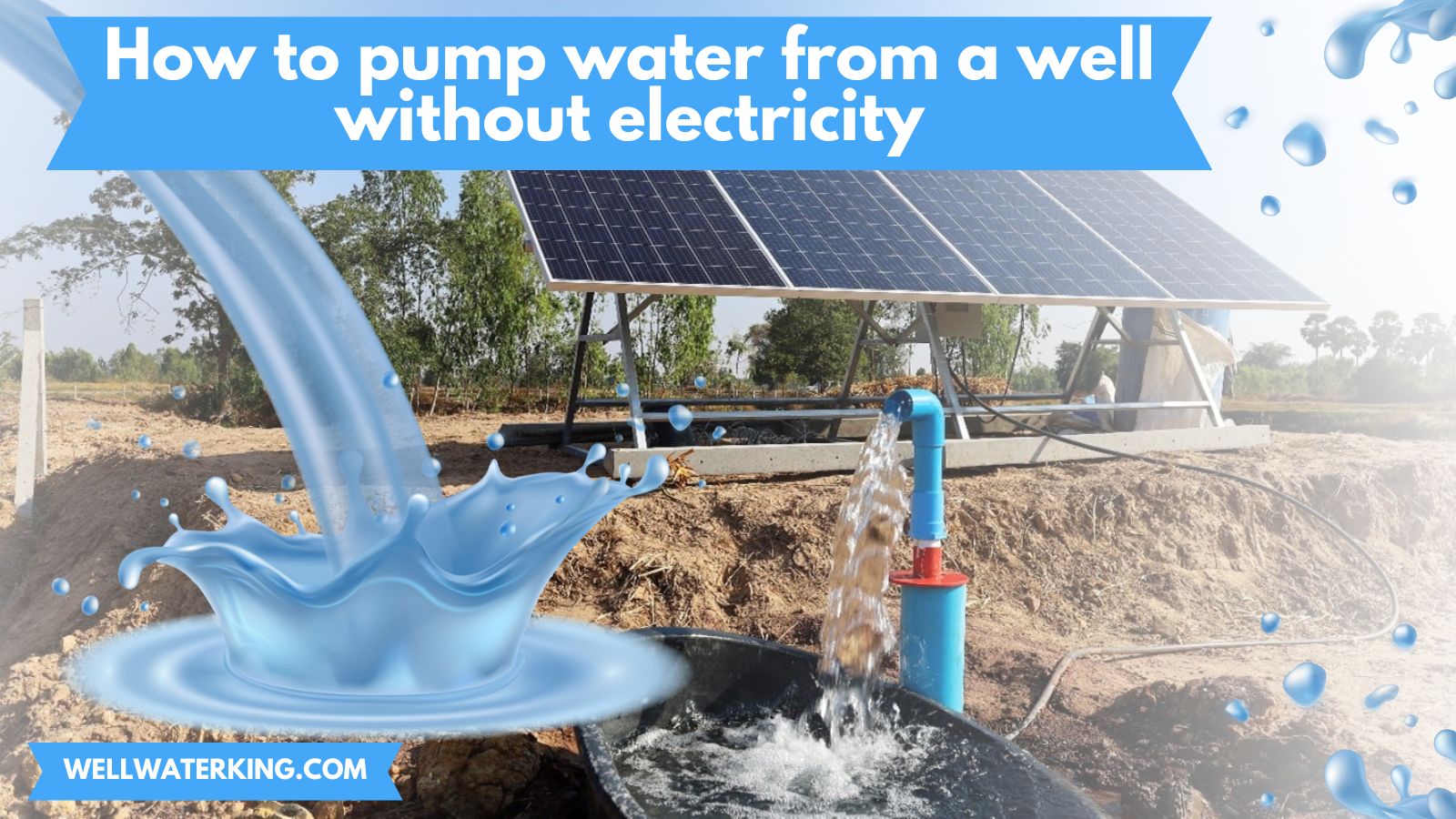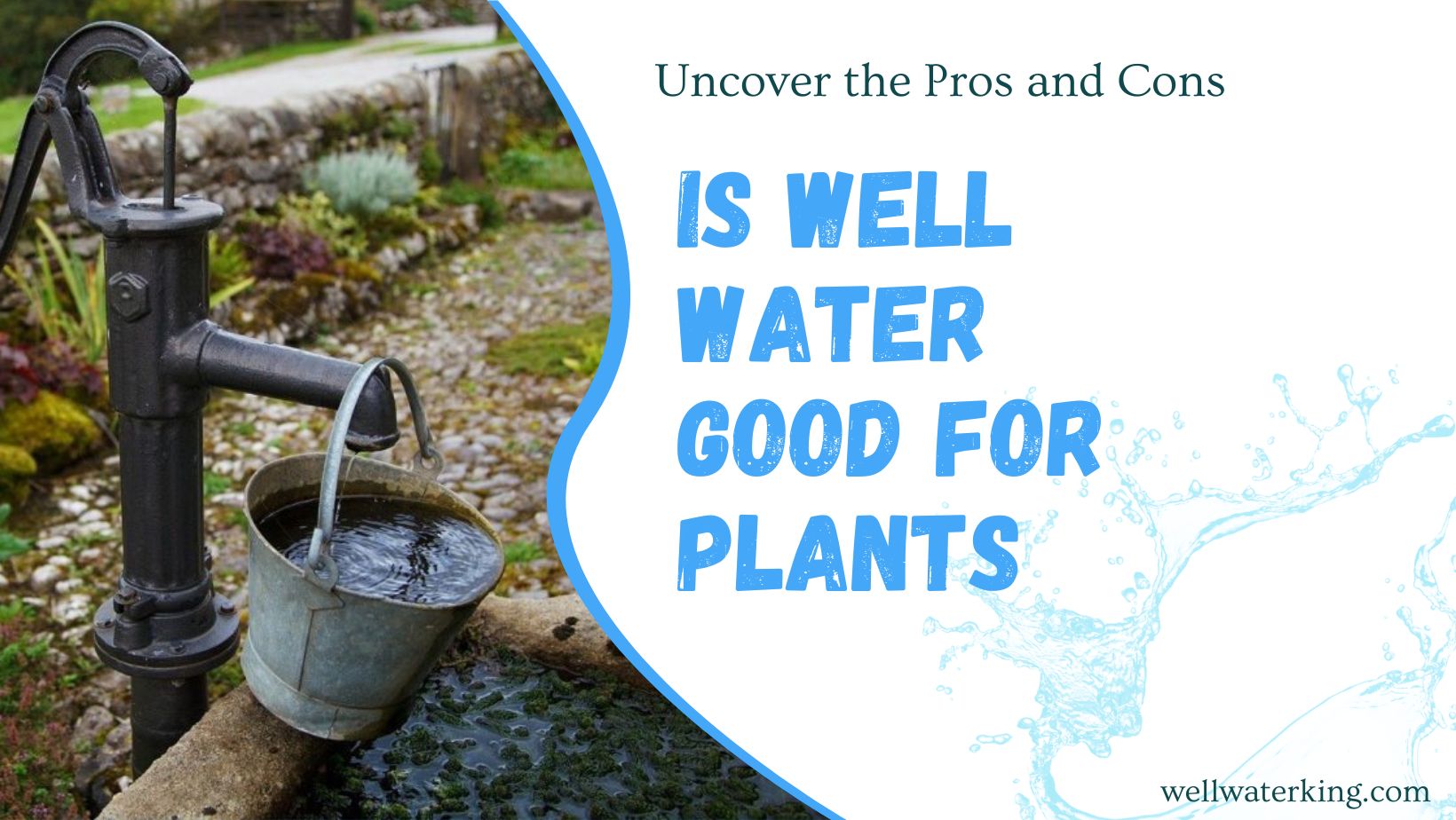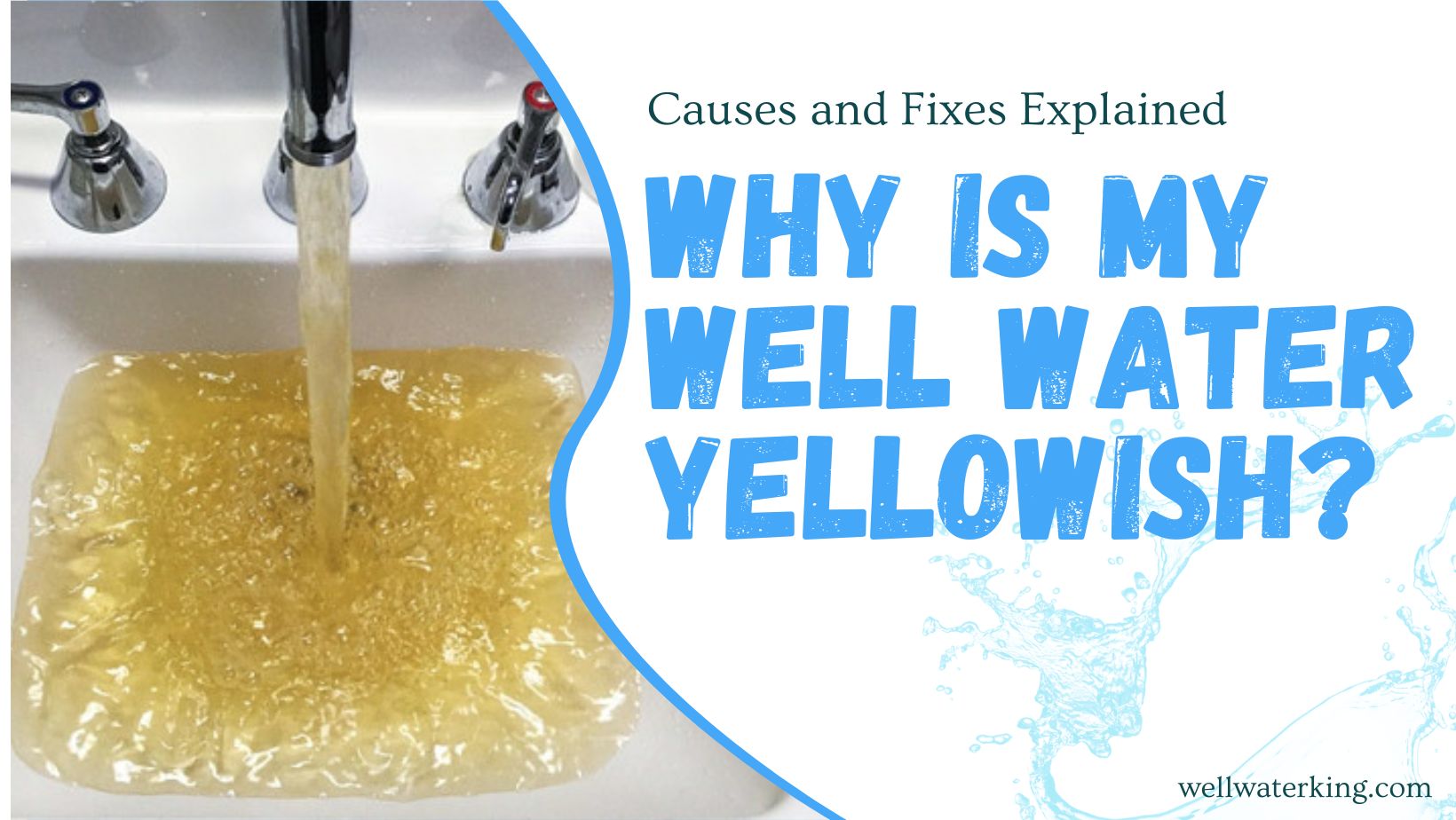Water is life, but what if the water you rely on has a few too many minerals hitching a ride? If you’ve ever felt the sting of dry skin after a shower, spotted a filmy residue on your glassware, or cursed at the stubborn water spots on your shower door, you might be dealing with hard well water. The culprit? A higher-than-liked concentration of minerals like calcium and magnesium. Enter the unsung hero of countless households: the water softener. But what exactly does a water softener do for well water, and why might you need one?
In this blog post, we will explore the benefits of using a water softener for well water, how it works, and what factors to consider when choosing the right water softener for your home. We will also discuss alternative solutions and maintenance tips to keep your water softener running smoothly. Say goodbye to spooky hard water facts and hello to the benefits of soft water for your home and health.
So, What is a water softener?
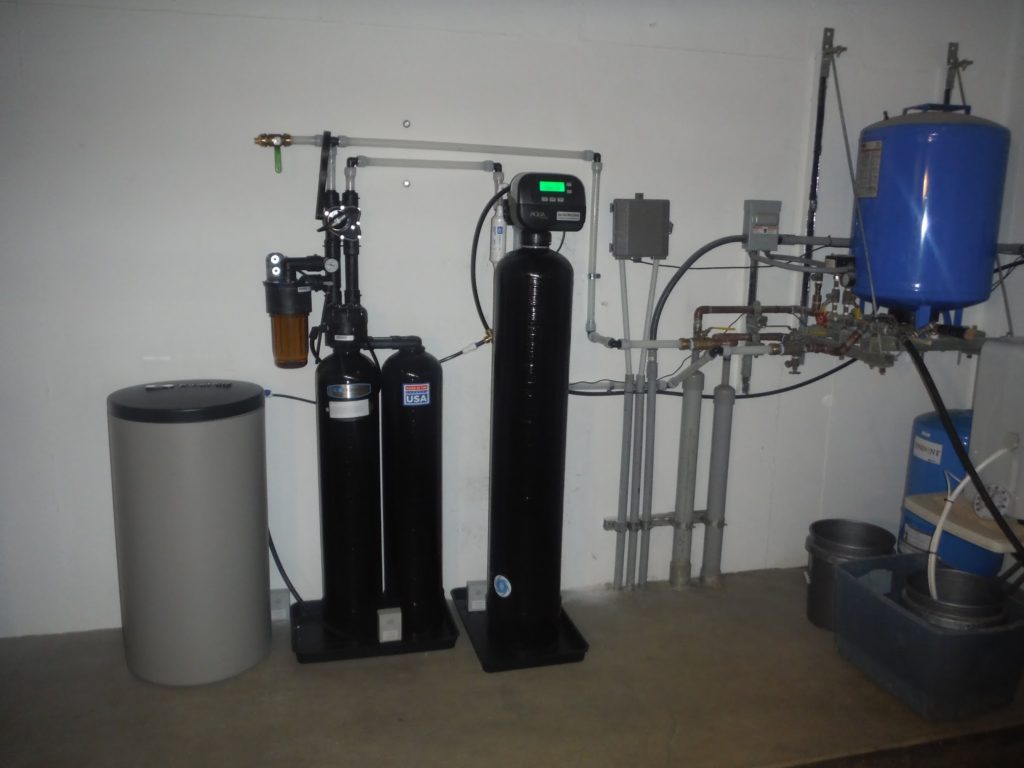
A water softener is a whole-home filtration system that removes minerals like calcium and magnesium from hard water. The softener contains resin beads that attract and latch onto the hard mineral ions. Through a process called ion exchange, the resin beads swap out the hard minerals for softer sodium ions.
This helps prevent limescale buildup from the hard minerals and provides softer water for cleaning, washing, and bathing. The softener system is typically installed where the main water line enters the home and works to soften all the water in the house. Water softeners benefit homes with hard well water by extending the life of plumbing and appliances, preventing scale buildup, and resulting in softer hair and skin after bathing. They require occasional maintenance like replacing filters and adding salt to regenerate the resin beads.
How does a water softener work?
A water softener works using a process called “ion exchange.” Here’s a brief explanation:
- Resin Beads: Inside the softener are tiny resin beads charged with sodium or potassium ions.
- Exchange Process: As hard water passes through, calcium and magnesium ions (which make water “hard”) are attracted to these beads. In exchange, the beads release their sodium or potassium ions into the water.
- Regeneration: Over time, the beads get saturated with calcium and magnesium. They are then regenerated by flushing with a brine solution, which recharges them with sodium or potassium ions, making them ready to soften water again.
The outcome? Water that’s “softened,” with reduced levels of calcium and magnesium, providing a range of benefits for household tasks.
What are the benefits of using a water softener for well water?
Using a water softener for well water can provide several benefits, including:
- Protecting Plumbing and Appliances: Hard water can cause mineral buildup in pipes and appliances, leading to clogs and damage. A water softener can help prevent this buildup, prolonging the life of your plumbing and appliances.
- Improving Water Quality: Soft water is gentler on your skin and hair, and can also improve the taste and clarity of your drinking water. By removing minerals like calcium and magnesium, a water softener can help improve the overall quality of your well water.
- Saving Money: By preventing damage to your plumbing and appliances, a water softener can save you money on repairs and replacements. Soft water also requires less soap and detergent to achieve the same cleaning results, which can save you money on cleaning products over time.
- Reducing Energy Consumption: Hard water can cause mineral buildup in water heaters, which can reduce their efficiency and increase energy consumption. By using a water softener to prevent mineral buildup, you can reduce your energy consumption and save money on your utility bills.
- Providing Professional-Grade Filtered Water: Depending on where you live, your well water may contain contaminants like bacteria, viruses, and chemicals. A water softener can help remove these contaminants, providing you with fresh, professional-grade filtered water that is safe to drink.
- Cost Savings: While there’s an upfront cost to install and maintain a water softener, the savings from extended appliance life, reduced energy bills, and fewer cleaning products can outweigh these costs over time.
- Fewer Stains: Soft water reduces the risk of hard water stains on dishes, glassware, and even on surfaces like car exteriors when washing.
Better Tasting Water: By removing certain minerals, water softeners can improve the taste of well water for some users.
What are the different types of water softeners available?
There are several different types of water softeners available on the market. Here is a list of the most common types:
- Salt-Based Water Softeners: Also known as ion exchange water softeners, these are the most commonly used and effective types of water softeners. They work by drawing heavy minerals like calcium and magnesium into a resin bed and exchanging them for sodium ions. Salt-based water softeners require regular replenishment of salt to regenerate the resin bed.
- Salt-Free Water Softeners: These water softeners use a different technology, such as a filtering system or template-assisted crystallization, to prevent the formation of scale without adding sodium to the water. They are a good option for those who want to avoid the use of salt or have health concerns related to sodium intake.
- Dual-Tank Water Softeners: Dual-tank water softeners consist of two resin tanks that alternate between regeneration cycles. This allows for continuous soft water supply without interruption. Dual-tank systems are typically recommended for larger households or those with high water usage.
- Magnetic Water Softeners: Magnetic water softeners use magnets placed around or in water pipes to alter the water’s magnetic field. The idea is that the altered magnetic field prevents mineral buildup and reduces the effects of hard water. However, the effectiveness of magnetic water softeners is still a topic of debate among experts.
- Reverse Osmosis Water Softeners: Reverse osmosis systems use a semi-permeable membrane to remove impurities, including minerals, from water. While not specifically designed as water softeners, reverse osmosis systems can effectively remove hardness-causing minerals, resulting in softened water.
It’s important to consider factors such as water hardness, household size, budget, and personal preferences when choosing the right type of water softener for your needs. Consulting with a professional or doing further research can help you make an informed decision.
Water Softener Maintenance
Water softeners require regular maintenance to ensure they continue to operate efficiently and effectively.
- Check Salt Levels: Regularly check the salt levels in your water softener and refill as needed. This will ensure that the resin bed is properly recharged and that your water is being softened effectively.
- Clean the Brine Tank: The brine tank is where the salt is stored and dissolved to create the brine solution used to regenerate the resin bed. Over time, the tank can become dirty and clogged with debris. Clean the tank periodically to prevent buildup and ensure proper function.
- Flush the Resin Bed: Even though your resin beads are routinely recharged by salt, it doesn’t hurt to flush the resin bed every few months with a water softener cleaner to keep it in top form.
- Check for Salt Bridges: Salt bridges occur when a hard crust forms in the brine tank, preventing salt from dissolving properly. Check for salt bridges periodically and break them up if necessary to ensure proper salt regeneration.
- Replace Filters: If your water softener has a filter, replace it periodically to prevent buildup and ensure proper function.
- Schedule Professional Maintenance: While there are many maintenance tasks you can do yourself, it’s also important to schedule professional maintenance periodically. A professional can check for leaks, test the water quality, and ensure that your water softener is operating at peak efficiency.
- Check for leaks: Inspect for any leaks around fittings, seals, and connections. Repair promptly to prevent scale buildup.
- Rebed resin: After prolonged use, resin beads can become fouled and may need replacement, often every 10-15 years.
In Conclusion: Understanding Water Softeners and Their Significance
Water is an essential part of our daily lives, and its quality can significantly impact our household chores, personal care, appliances, and even our wallets. Hard water, enriched with minerals like calcium and magnesium, often emerges from our wells, leading to various inconveniences like spotty dishes, dry skin, and shortened appliance life.
Water softeners are the solution. They operate mainly through an ion-exchange process, replacing hard minerals with sodium or potassium ions. The market offers various softener types, from salt-based systems to magnetic descalers, catering to diverse needs and preferences.
The benefits of using a water softener are multifaceted. From ensuring your clothes come out of the wash softer and brighter, to reducing the energy bills, to granting your hair and skin a healthier glow, soft water is undeniably advantageous. However, like all appliances, softeners need regular maintenance. This upkeep, from checking salt levels to periodic professional check-ups, ensures your investment remains effective for years to come.
As you reflect on the importance of water in your life, consider the role a water softener could play in enhancing its quality. With the right system in place, and diligent maintenance, you can enjoy the myriad advantages of soft water and ensure a smoother flow of daily tasks in your household. So, the next time you fill a glass from the tap or step into a shower, think of the gentle power of soft water and the technology that makes it possible.

